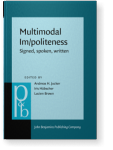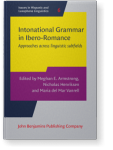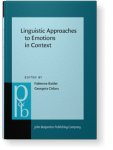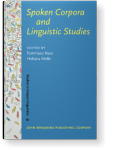Albert Rilliard
List of John Benjamins publications for which Albert Rilliard plays a role.
2023 Chapter 8. Perceptual changes between adults and children for multimodal im/politeness in Japanese Multimodal Im/politeness: Signed, spoken, written, Jucker, Andreas H., Iris Hübscher and Lucien Brown (eds.), pp. 213–249 | Chapter
Japanese im/politeness attitudes are conveyed by audiovisual prosody in tandem with lexical markers. This chapter reports on two experiments about the acquisition by Japanese elementary school children of prosodic codes and social categories. The first experiment studied the perceived degree of… read more
2016 Prosody and Emotion in Brazilian Portuguese Intonational Grammar in Ibero-Romance: Approaches across linguistic subfields, Armstrong, Meghan E., Nicholas Henriksen and Maria del Mar Vanrell (eds.), pp. 135–152 | Article
This study addresses the production and perception of four emotions (anger, joy, sadness, and fear) performed in Brazilian Portuguese sentences of different modes: declarative (assertions), interrogative (yes/no questions), and imperative (orders). The results of an acoustic analysis and of… read more
2014 Cross-cultural perception of some Japanese politeness and impoliteness expressions* Linguistic Approaches to Emotions in Context, Baider, Fabienne H. and Georgeta Cislaru (eds.), pp. 251–276 | Article
Prosodic strategies may express polite or impolite speech acts. Five such strategies in Japanese are studied in a cross-cultural experiment. The attitudes are presented to subjects in different modalities: audio-only, video-only, audio-video and also described in Natural Semantic Metalanguage… read more
2014 Illocution, attitudes and prosody: A multimodal analysis Spoken Corpora and Linguistic Studies, Raso, Tommaso and Heliana Mello (eds.), pp. 233–270 | Article
Through the analysis of an audio-visual corpus of Brazilian Portuguese prosodic attitudes, this paper describes the effect of attitude category on the prosodic realization of sentences. Attitudes that directly address the propositional content of utterances, which in fact correspond to new… read more



